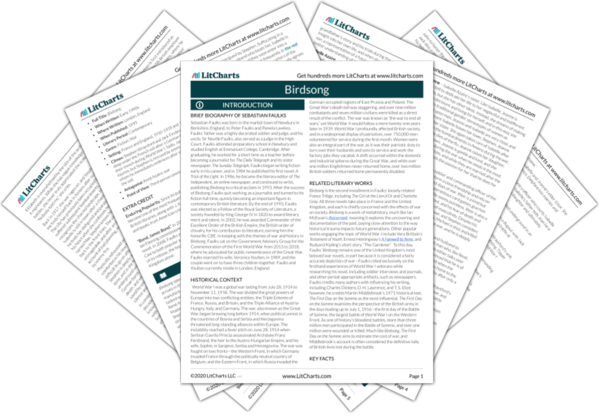With this passage, Faulks argues that there is no such thing as “ancient history.” The impact of the war is as important today as it was seventy years ago, and it will continue to be in the future. Not only is the war a profound lesson on the potentially evil nature of humankind, it also lends valuable insight into Elizabeth’s modern life.
